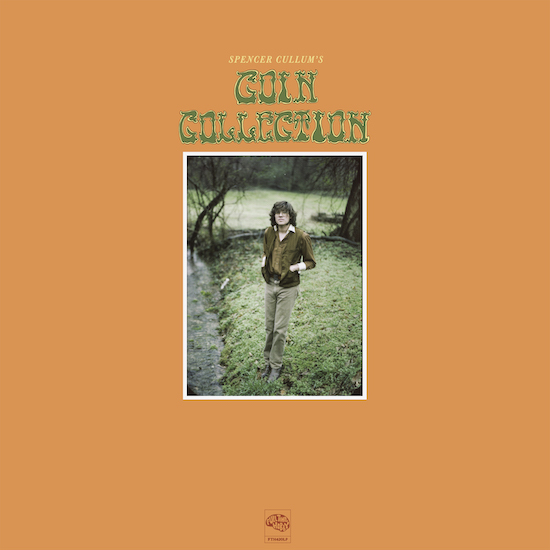Spencer Cullum is a pedal steel guitarist from the UK, now settled in Nashville. His first solo album parks 1960s English psychedelia – always treading a line between the fey and the unsettling – on the lawn of American country guitar music, a powerful influence on 60s sounds in the States. The album’s title, knowingly chosen to fit on ‘Nuggets’ compilations alongside such bands as The Curiosity Shoppe or The Clefs of Lavender Hill, threatens a pastiche. Fortunately, it is a great deal better than that. From the start, it is clear that Cullum knows what he wants to do with the sounds he carefully crafts with his troupe of collaborators. The album celebrates the music of a different era, but it also talks directly to the 2020s.
The opening track, ‘Tombre de Morceaux’ concerns disappointment and aging. It is a contribution to the existential dread sub-genre of psych found on songs such as ‘Strange Walking Man’ by Mandrake Paddlesteamer or Bill Fay’s ‘Screams in the Ears’. However, lyrics about having “a headache from a glass of wine the night before” move us into middle age, probably speaking to the prime audience for lost and found psychedelia. ‘Imminent Shadow’ is a darker song, about approaching depression. On ‘To Be Blinkered’, “The bird and the bees vanish in the air / but I don’t care”. Disconnection and mental struggle, expressed through songs that can seem both childlike and profound, where mellotrons, synths, cello, and clarinet can put up a cheerful but fragile front.
‘The Tree’, from the Incredible String Band’s first album, is a tough song to cover. The original keeps the whimsy of a song about talking to a tree in check with Mike Heron’s alarming, Dylan-esque vocals. Cullum’s cover lacks this edge and, although expertly constructed, is the only track on the album that seems to lack a purpose beyond paying homage. On the other hand, ‘Dieterich Buxtehude’ (named after the Baroque composer) cuts through into a deeper form of psychedelia. A throbbing, cosmic bassline and riffing guitar, sounding as though broadcast over a glitchy radio connection, builds into a marauding eight-minute slab of weighty pleasure. This is the most improvisational track on the album but others delight in resurrecting the sounds of the Canterbury scene. ‘The Dusty Floor’, with a bitter sweet tune that yearns for all it’s worth, would slot smoothly onto Caravan’s ‘The Land of Grey and Pink’. This is a highly enjoyable album, made by musicians who clearly love the sounds that influence them and are not afraid to show it.


